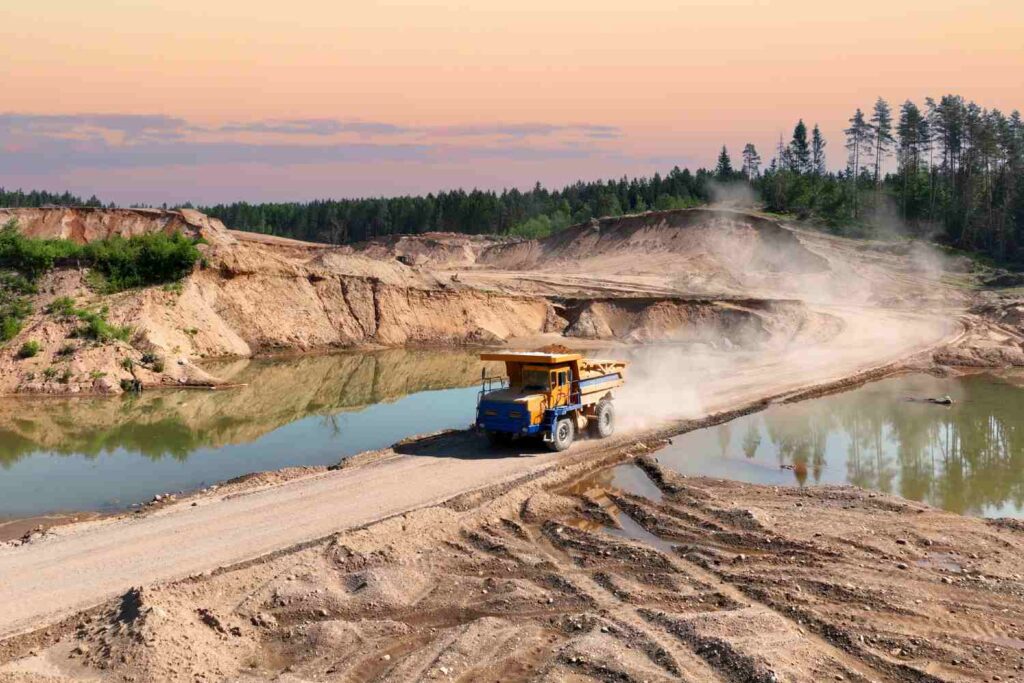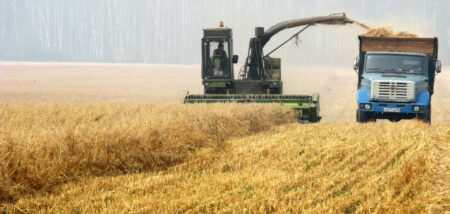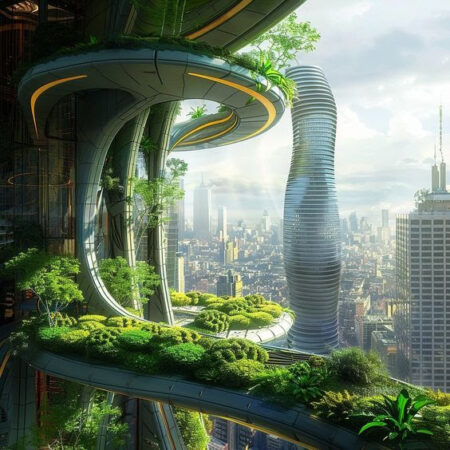- This is the first critical raw materials agreement between the European Investment Bank (EIB), the world’s largest international public bank, and an African partner.
- The collaboration aims to address the growing global demand for critical raw materials, including base metals, battery materials, and rare earths.
- EIB Global technical and financing teams will increase cooperation with critical raw material partners to explore new investment opportunities in Rwanda.
In a first of its kind in Africa, Rwanda has entered into a partnership with the European Investment Bank (EIB), aiming to enhance the country’s investments in the critical raw material supply chain and boost recycling.
Notably, this agreement marks the first critical raw materials collaboration between the European Investment Bank, the world’s largest international public bank, and an African country.
The alliance between the EIB and Rwanda signifies a collective effort to promote sustainable development, strengthen the country’s economic ties with Europe, and address the growing global demand for crucial raw materials, including base metals, battery components, and rare earths.
Signing of this agreement was witnessed by Rwandan President Kagame and European Commission President von der Leyen. The leaders said the deal reflects a shared commitment to unlocking potential in critical raw materials investment and fostering cooperation to identify and scale up investment opportunities in this crucial sector.
Strategic investment alliance between Rwanda and EIB
The strategic alliance between Rwanda and the EIB is set to be a catalyst for strengthened technical and financial cooperation, focusing on the identification of critical raw material sector investments that not only generate skilled jobs but also foster economic development while ensuring environmentally and socially responsible practices.
This collaboration marks a significant milestone for Rwanda, positioning it at the forefront of sustainable economic development through responsible resource management.
The agreement follows agreements between the European Commission and the Democratic Republic of Congo, Namibia, and Zambia.
Dr. Uzziel Ndagijimana, the Minister of Finance and Economic Planning for Rwanda, expressed optimism about the positive impact of this joint declaration on the nation’s development.
He highlighted Rwanda’s dedication to sustainable economic growth and articulated expectations of leveraging this partnership to create skilled jobs, bolster the economy, and ensure the responsible utilization of critical raw materials.
Vice-President Gelsomina Vigliotti emphasized the significance of this partnership in alignment with the Critical Raw Materials (CRM) Act. Securing access to the critical raw material value chain, adhering to essential Environmental, Social, and Governance (ESG) standards, is deemed imperative for enabling the green and digital transition.
Deal to unlock new investments and create jobs
The collaboration between Africa and Europe is positioned to unlock new investments, generate jobs, and contribute significantly to the responsible development of essential resources, fostering a paradigm shift in the global approach to critical raw material management.
With the newly formed partnership, the lender says it actively supports the implementation of the European Critical Raw Materials Act, a crucial step toward securing an affordable and sustainable supply of critical raw materials.
This Act, announced by the European Commission in March 2023 and adopted by the European Parliament in September 2023, sets the stage for a sustainable and resilient raw material value chain.
Following Rwanda’s agreement, EIB Global technical and financing teams will increase cooperation with critical raw material partners to explore new investment opportunities and increase access to finance for environmentally sound projects that contribute to sustainable long-term economic development.
The collaboration signifies a collective effort to foster sustainable development, strengthen economic ties, and address the growing global demand for critical raw materials, including base metals, battery materials and rare earths.
Read also: End the Mining-Only Mindset: How Africa Can Benefit from its Critical Minerals
Critical raw materials mining in Rwanda
Rwanda’s mining industry traces its roots back to the early 20th century. Between 1920 and 1930, a team from its colonial master Belgium commissioned by UMH (Union Minière du Haut Katanga), that started mineral exploration. The outcomes of these geological studies paved the way for the establishment of two mining companies: MINETAIN (Ruanda-Urundi Tin Mines Company) and SOMUKI (Muhinga-Kigali Mining Company), which started mining in 1934.
The country’s raw materials mineral wealth is vast and diverse. The East African country is a major global producer of tin, tantalum, rare earths and tungsten (3Ts), and additionally engages in the exportation of gold and gemstones. The country’s mineral wealth extends beyond these primary resources to include a diverse range of minerals like silica sands, kaolin, vermiculite, diatomite, clays, limestone, talcum, gypsum, and pozzolan.
Rwanda’s mining sector has evolved strategically through the application of geological mapping, airborne surveys, and geochemistry, leading to the identification and extraction of these valuable resources. The emphasis on exploration has been pivotal in establishing Rwanda as a significant player in the global mining arena.
To enhance the value derived from mined ores, Rwanda has invested strategically in refining and smelting. This approach adds substantial value to the extracted minerals and generates additional benefits through the creation of valuable by-products. For instance, the Gasabo Gold Refinery in the Kigali Special Economic Zone, where raw gold is refined, and silver is marketed as a valuable by-product.
Similarly, the Luna Tin Smelter in Karuruma processes cassiterite, and sells coltan as a by-product. The POWER-X coltan refinery has embarked on refining coltan ore, separating tantalum and niobium, further contributing to Rwanda’s rising mining industry success.
The surge in mining activities and the upward trend in raw materials prices propelled Rwanda to achieve its highest foreign exchange earnings from mineral exports in 2022. The country recorded nearly US$800 million, a substantial increase from just over $400 million in 2019.
Read also: Tanzania’s race to ink multimillion dollar mining deals
Critical raw materials in Africa
Across Africa, critical raw minerals are catching the eye of global investors due to rising the global demand for clean energy and technology, providing Africa with another opportunity to supply the world with essential minerals.
“As countries accelerate efforts to reduce emissions, they also need to ensure energy systems remain resilient and secure. The rising importance of critical minerals in a decarbonizing energy system requires energy policymakers to expand their horizons and consider potential new vulnerabilities. Concerns about price volatility, security of supply, and the shifting sands of geopolitics do not disappear in an electrified, renewables-rich energy system,” a report by the International Energy Agency (IEA) reads in part.
The IEA argues that solar PV plants, wind farms, and electric vehicles generally require more critical minerals to build than their fossil fuel-based counterparts. A typical electric car requires six times the mineral inputs of a conventional car, and an offshore wind plant requires 13 times more mineral resources than a similarly sized gas-fired plant.
The IEA report describes how the demand for critical minerals, such as lithium available in African growing mineral markets like Tanzania, has grown over the past five years.
“From 2017 to 2022, demand from the energy sector was the main factor behind a tripling in overall demand for lithium, a 70 per cent jump in demand for cobalt, and a 40 per cent rise in demand for nickel. Propelled by rising demand and high prices, the market size of key energy transition minerals doubled over the past five years, reaching $320 billion in 2022,” the IEA report said in part.
Moreover, beyond reserves, mining and production are already in full swing in several countries. Nearly 70 per cent of all cobalt produced globally comes from the Democratic Republic of Congo (DRC).
Furthermore, African countries such as DRC, Zimbabwe, Ghana, Mali, and Namibia are endowed with lithium, which has applications in everything from EV batteries to the lubricants that enable wind turbines to spin. Fortunately, Namibia is also the world’s second-largest producer of uranium, used in nuclear energy.











